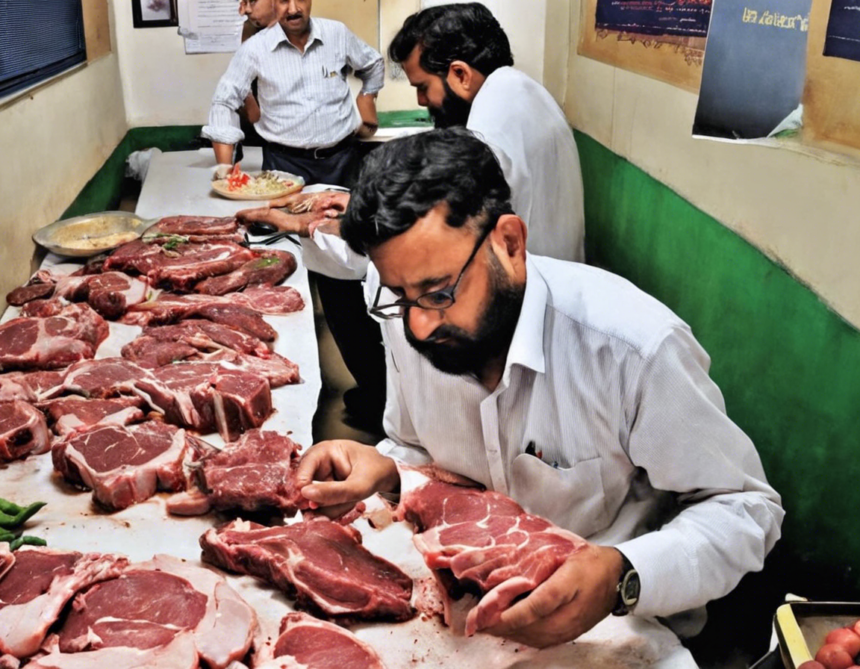The Director of Indian Institute of Technology (IIT) Mandi, Dr. Ajit K. Chaturvedi, recently addressed some prevalent myths surrounding meat-eating in the Indian context. Let’s delve into some of these myths and understand the reality behind them.
Myth: Meat is the Only Source of Protein
Reality:
While meat is indeed a rich source of protein, it is not the only source available. Plant-based proteins such as lentils, beans, quinoa, tofu, and nuts can provide ample protein to meet dietary requirements. It is essential to have a well-balanced diet that includes a variety of protein sources for optimal nutrition.
Myth: Meat Consumption is Essential for Strength and Muscle Building
Reality:
Contrary to popular belief, it is possible to build strength and muscle mass on a vegetarian or vegan diet. Athletes like bodybuilders, weightlifters, and athletes across various sports have successfully pursued plant-based diets and achieved remarkable results. Plant-based proteins can effectively support muscle growth when combined with regular strength training.
Myth: Meat is the Only Source of Iron
Reality:
Iron is crucial for oxygen transportation in the body, and while meat contains heme iron, plant-based sources like spinach, lentils, fortified cereals, and quinoa provide non-heme iron, which is also easily absorbed by the body. Vitamin C-rich foods such as citrus fruits can enhance iron absorption from plant-based sources.
Myth: Vegetarian Diets are Nutritionally Deficient
Reality:
With proper planning, a vegetarian or vegan diet can provide all essential nutrients. It is vital to include a variety of foods such as fruits, vegetables, whole grains, and plant-based proteins to ensure adequate intake of vitamins, minerals, and macronutrients. Consulting a registered dietitian can help design a balanced vegetarian meal plan.
Myth: Meat Consumption is Inherently Healthier
Reality:
While lean meats can be part of a healthy diet, excessive consumption of red and processed meats has been linked to various health risks such as heart disease, diabetes, and certain cancers. Embracing a plant-based diet rich in whole foods and minimally processed ingredients can have significant health benefits.
Myth: Meat-eating is Essential for Brain Health
Reality:
Omega-3 fatty acids, essential for brain health, are commonly associated with fish consumption. However, plant-based sources like flaxseeds, chia seeds, and walnuts provide alpha-linolenic acid (ALA), a precursor to omega-3 fatty acids. Supplementation with algae-based DHA is also available for those following a vegan diet.
In conclusion, it is essential to debunk these myths and recognize the diverse sources of nutrients available in a balanced diet. Whether one chooses to include meat in their diet or opt for a vegetarian or vegan lifestyle, prioritizing variety, moderation, and nutrient-dense foods is key to promoting overall health and well-being.
Frequently Asked Questions (FAQs):
- Can vegetarians meet their protein requirements without meat?
-
Yes, vegetarians can meet their protein needs through plant-based sources like legumes, nuts, seeds, and whole grains.
-
What are some plant-based sources of iron?
-
Plant-based sources of iron include spinach, lentils, tofu, quinoa, and fortified cereals.
-
Is it possible to build muscle on a vegetarian or vegan diet?
-
Yes, individuals can build muscle on a plant-based diet by consuming adequate plant-based proteins and engaging in regular strength training.
-
Are vegetarian diets nutritionally adequate for all age groups?
-
With proper planning, vegetarian diets can provide all essential nutrients for individuals across different age groups.
-
How can one ensure they are getting all essential nutrients on a plant-based diet?
-
Ensuring a varied diet rich in fruits, vegetables, whole grains, and plant-based proteins, along with possibly consulting a registered dietitian, can help meet nutritional needs.
-
Can plant-based diets support heart health?
-
Yes, plant-based diets rich in fiber, antioxidants, and healthy fats have been associated with a reduced risk of heart disease.
-
Are there any health risks associated with excessive meat consumption?
-
Excessive consumption of red and processed meats has been linked to an increased risk of diseases such as heart disease, diabetes, and cancer.
-
How can vegetarians ensure they are getting enough omega-3 fatty acids?
- Vegetarians can obtain omega-3 fatty acids from sources like flaxseeds, chia seeds, and walnuts, or consider supplementation with algae-based DHA.
By dispelling misconceptions and understanding the diverse options available, individuals can make informed choices about their dietary preferences and lead a healthy lifestyle.

